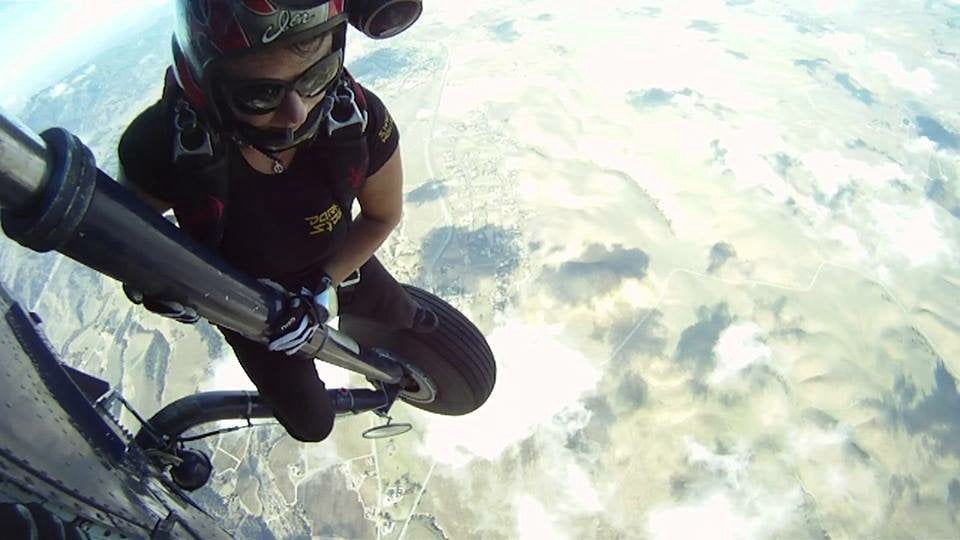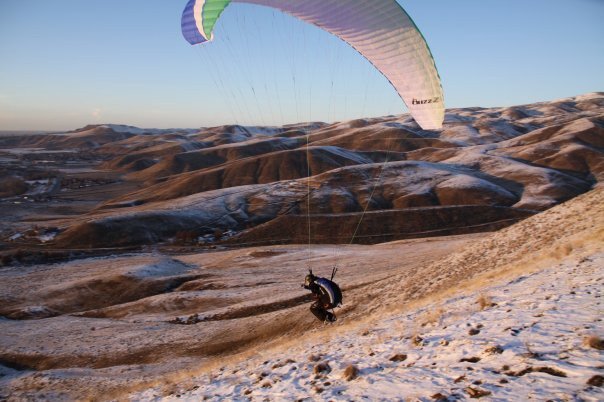Twelve Golden Rules From The Kitchen For Effective Leadership: ‘Mise En Place’
We’ve often been taught that “faster is better” when hustling to get a job done, but during my time working in the catering business, I learned...

Take it from us: Jenn Evans will sneak up on you. She’s unexpected.
Jenn’s two decades in the skydiving industry—with more than four thousand tandem skydives instructed, not to mention all the skydiving she’s done as a camera flyer and for fun—hide invisibly under her pixie grin and twinkling hazel eyes. In those years, she’s garnered a sterling reputation as an instructor, community organizer, entrepreneur and all-around human. In fact, we credit Jenn’s unique alchemy of high-octane drive and easygoing manner with Sigma’s explosive early success: Nearly a third of the 300+ dropzones in America are already trying Merit, and the system just debuted last year.
“I did my first tandem at 18,” Jenn laughs. “That was 20 years ago. I loved it. I earned my license as soon as I could.”
In her 20s, Jenn owned a medical spa. “Going on vacation was not an option,” Jenn explains, “Because my spa had 35 women working there. Weekend skydiving was my vacation for many years.”
It was the skydiving that kept Jenn going through a series of tumultuous years. Eventually, Jenn made the decision to move to California and skydive full-time. “I started flying camera, but I loved teaching and I wanted more, so I got my tandem rating. There is something truly wonderful about being able to share skydiving with people. It is a bond; it really serves your soul. I really do love it; I love the family that we have in the sport of skydiving. That’s why I decided to pack up everything and move to a state where I didn’t know anybody; because I knew I’d find a home on the dropzone.”

Fast-forward to three and a half years ago now, when some of the founders of Merit were learning to skydive at Jenn’s dropzone—Skydive Hollister, a Northern California standby just inland of Monterey Bay.
“I got to be their ground school instructor,” she remembers. “And we were tight pretty much immediately. So, instead of doing ground school at the dropzone, we all went to [co-founder] Dylan’s apartment. Dylan’s girlfriend at the time was an exotic animal handler and was nursing a bunch of zoo animals back to health, so our ground school had some cool mascots—there was a skunk in their bathroom; a kangaroo in their living room; an owl in the kitchen.”
Jenn obviously made a great impression. When the Merit team set their sights on the skydiving industry, Jenn was a natural fit. Jenn is often the first point of contact that dropzones meet when they’re getting acquainted with Merit. She takes pride in making the learning curve easy and fun—just like she did when she was teaching new jumpers the ropes in the sky full-time.
These days, Jenn confidently takes the reins as far as onboarding, outreach and customer service for this very rapidly expanding company—and it doesn’t hurt that she’s a passionate believer in the Merit offering, for personal as well as professional reasons. Jenn was burned badly in a legendarily large-scale licensing fiasco that could have been easily prevented, had the Merit system been in place. The story is long, but the summary is this: The tandem instructor who had issued her the original tandem rating that she had been working under for many years was revealed to have been operating under an illegitimate license. Jenn’s tandem certification, along with that of the hundreds of other skydivers that were given instruction under this person, was immediately rendered invalid pending further tests and training. One day, out of nowhere, she and many others received a notice that they had to re-certify immediately or face the consequences. She was, of course, shocked unto reeling.
“It was a nightmare,” Jenn explains, “The good thing is that nothing terrible happened in those 4,000-plus tandems; if something had, the responsibility for accepting training from someone who was dishonest about their qualifications would fall back onto me, even though there’s absolutely no way I could have known. If I’m counting my blessings, that’s more than 4,000 blessings, with Merit, that kind of thing doesn’t ever have to happen again. The current system disempowers regulating bodies from operating like a truly professional organization, and Merit fills that really big gap.”
“And as an instructor—as a coach—knowing what someone’s true experience levels are before I start teaching them is a form of insurance,” she adds. “For everyone’s safety, it’s important that the person being coached is who they say they are, and has the experience they say they have. Before Merit, misrepresentation was just the way it was; after Merit, coaches and instructors have as much power to check these credentials as dropzones do.”

“Having all of your merits and achievements in one place is great for users, too,” she continues, “For instance: I am a paraglider, and a scuba diver, and I used to race motorcycles, so I know how powerful it would be to have all of my certifications in one place. I can’t tell you how many times I have gotten back from an exhausting weekend of having so much fun, and then wondering where the heck I put my membership card; wondering if I remembered, in all of that, to log anything?”


“Sigma,” she continues, “Will be the reason that people will soon be able to travel without cards and logbooks, and just pull out their mobile device to show all of their qualifications. And I think that in five years, when people send out their resumes, they’ll send their Sigma profile to demonstrate what experience they’ve really accrued.”
According to Jenn, it’s not just skydiving that’s going to be revolutionized by Merit. Far from it, actually.
“I have such wild aspirations for this company,” she muses. “Even though we’re just in the skydiving industry at the moment, there are so many different industries that can utilize us and benefit from verifying merits online: medical, scouts, first response, water sports, motorsports, martial arts…the list just keeps going.”

We’ve often been taught that “faster is better” when hustling to get a job done, but during my time working in the catering business, I learned...
Your people are your most valuable asset and your biggest competitive advantage. Invest in them wisely, and they’ll take your company places you...
Big workforce initiatives thrive on strong collaboration between ecosystem partners; however, navigating those projects may sometimes be challenging....